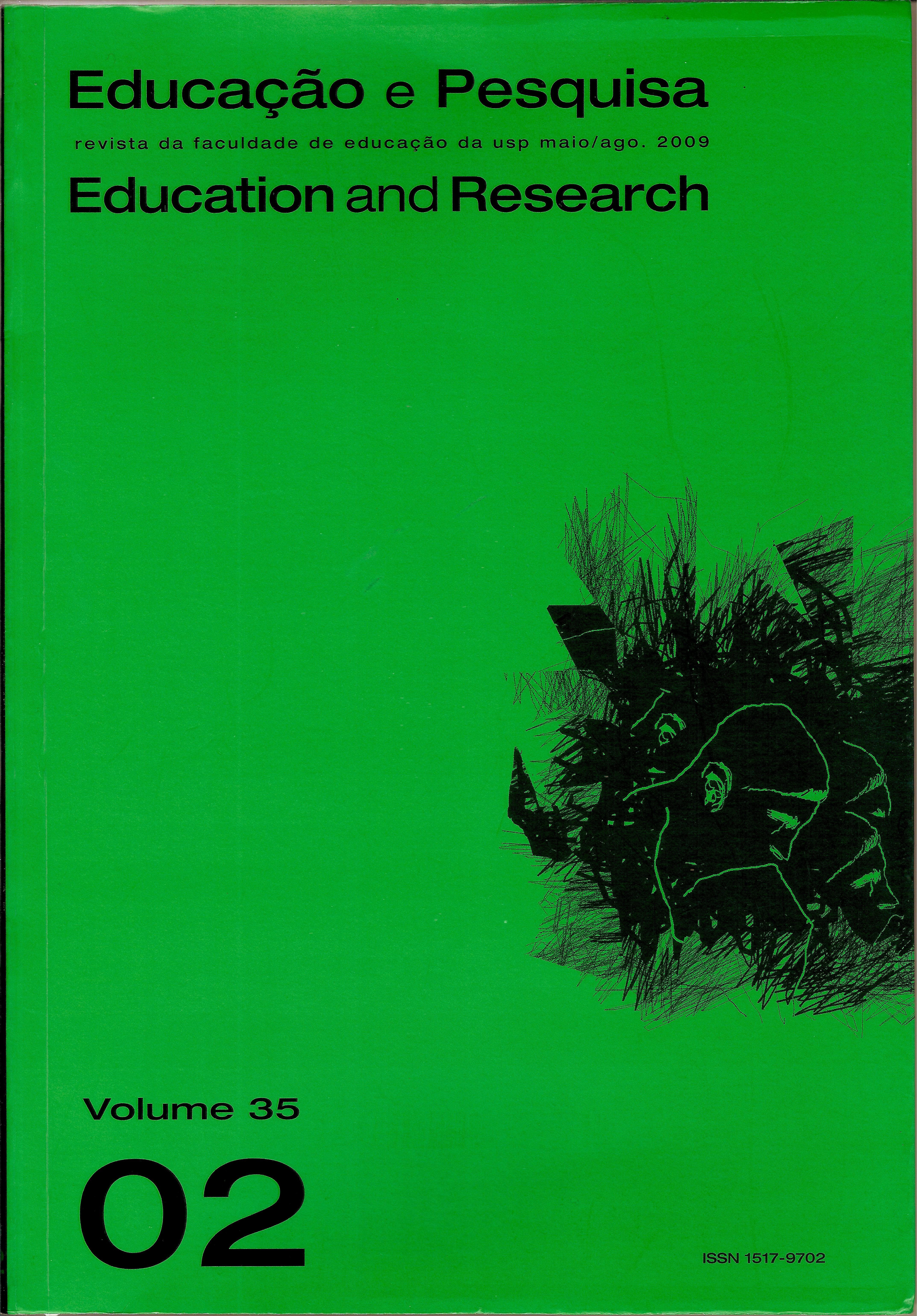Singularidade e formação (Bildung) em Schopenhauer como educador de Nietzsche
DOI:
https://doi.org/10.1590/S1517-97022009000200003Palavras-chave:
Singularidade, Formação (Bildung), Schopenhauer, NietzscheResumo
A partir do escrito Schopenhauer como educador, buscar-se-á explicitar a dimensão modelar de Schopenhauer, tanto para a constituição do ideal de filósofo e pensador que Nietzsche cria para si, quanto para a edificação da sua teoria da formação (Bildung). Isso será dado, num primeiro momento, pela apresentação do pendor crítico do pensamento schopenhaueriano e da sua insubmissão às tendências filosóficas e culturais do seu tempo; num segundo momento, pela elucidação da especificidade da teoria nietzschiana do autoconhecimento e da sua concepção da singularidade, com o que se revelará sua teoria do fundamento metafísico da natureza, que o leva a conceber o filósofo, o artista e o santo como os tipos singulares por excelência nos quais a natureza justifica os seus esforços e supera a mera necessidade. Essas tipologias revelam as tarefas que a educação deve, ao juízo de Nietzsche, perseguir se não quiser se tornar mero abstracionismo ou mera aderência acrítica ao mundo: jamais condescender aos modismos culturais; não separar pensamento e vida com o que se diz, também, que teoria e prática não estão separadas; incorporar a singularidade como aquilo que a educação promove; e, por fim, eleger a autossuperação como a tarefa mais imperiosa para a constituição do humano no seu sentido mais pleno.Downloads
Os dados de download ainda não estão disponíveis.
Downloads
Publicado
2009-08-01
Edição
Seção
Seção Artigos
Licença
A publicação do artigo em Educação e Pesquisa implica, automaticamente, por parte do(s) autor(es) a cessão integral e exclusiva dos direitos autorais da primeira edição para a revista, sem quaisquer honorários.
Após a primeira publicação, os autores têm autorização para assumir contratos adicionais, independentes da revista, para a divulgação do trabalho por outros meios (ex.: repositório institucional ou capítulo de livro), desde que citada a fonte completa, com as referências da mesma autoria e dos dados da publicação original.
As ideias e opiniões expressas no artigo são de exclusiva responsabilidade do autor, não refletindo, necessariamente, as opiniões da revista.
Como Citar
Singularidade e formação (Bildung) em Schopenhauer como educador de Nietzsche . (2009). Educação E Pesquisa, 35(2), 251-264. https://doi.org/10.1590/S1517-97022009000200003



